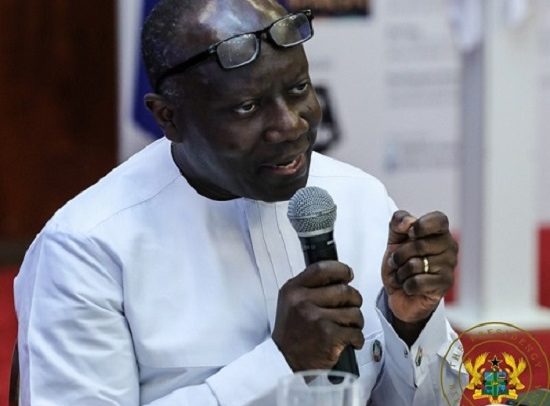Ken Ofori-Atta
Government spending is being cut to the bone under plans aimed at reducing the country’s deficit – where it was spending much more money than it was raising in taxes, and in the face of debt restructuring.
Finance Minister, Ken Ofori-Atta, who revealed this, said anyone in doubt could verify from one ministry to the other for confirmation.
“Expenditures are being cut to the bone. You can ask from ministry to ministry and they will confirm that. But more importantly, the GITMIS and our computer systems will really ensure on commitment basis and quarterly allocations” to achieve the programme of deep spending cuts.
Speaking in an interview with Joy News, Mr. Ofori-Atta said as a result, ministries and many departments would have less spending power now than they had before 2022.
“You cannot even post what is not in your budget, and that really is important. Because if you look at the past, you see areas in which certain contracts were signed way beyond budget,” the minister indicated, and added, “The system will not even allow you to.”
He continued, “We, ourselves as a Ministry [of Finance], are setting up an oversight committee that ensures everybody stays within that ambit, and then more importantly, the reviewing that we are doing on various programmes to make sure that inefficiencies and leakages are done with.”
Ofori-Atta intimated that members of the committee would be vigilant about spending by the Metropolitan, Municipal and District Assemblies geared toward the expenditure rationalisation effort.
According to the Finance Minister, the Ghana Revenue Authority (GRA) is now on the trajectory to perform properly, with a lot more digitalisation, noting, “And that has been helping us immensely.”
The minister said these efforts were being made to engender confidence in the citizens of the government’s ability to judiciously use revenue generated for them in order to contribute willingly in the burden-share programme.
He disclosed that within the first quarter of 2022, the government suspended roughly 20% of the budgeted expenditure for that year towards its fiscal consolidation agenda.
“I think the issue of certain structural reforms which we are discussing with a lot of people are also what is expected of this government. Some had decisions including a debt exchange, reforms, commitment basis for expenditure etc. How do we look at the ministries?
“What are we going to do about these flagship programmes? And all of those are critical components of this journey that we are embarking on and we will be successful,” he stated.
On infrastructure and other capital expenditures, the minister said the passage of the Public Private Partnership Act, 2020 (Act 1039) is taking away some of the expenditure burdens from the shoulders of the government, thereby bringing in private capital to support these expenditure projects.
“And that will move a huge burden and also ensure that governance on a private sector basis is what then comes to prevail, and that will bring those changes. So those are important changes that will impact the way in which capital expenditures are reduced, and therefore the government’s need to fund these projects,” he stressed.
BY Ernest Kofi Adu

